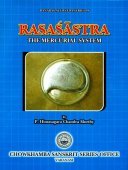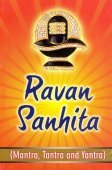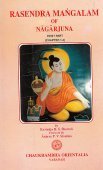He, Hē, Hé: 15 definitions
Introduction:
He means something in Buddhism, Pali, Hinduism, Sanskrit, the history of ancient India, Marathi, Hindi, biology, Tamil. If you want to know the exact meaning, history, etymology or English translation of this term then check out the descriptions on this page. Add your comment or reference to a book if you want to contribute to this summary article.
He has 15 English definitions available.
Images (photo gallery)
(+666 more images available)
Languages of India and abroad
Sanskrit dictionary
[Deutsch Wörterbuch]
Source: Cologne Digital Sanskrit Dictionaries: Böhtlingk and Roth Grosses Petersburger WörterbuchHe (हे):—interj. gaṇa svarādi zu [Pāṇini’s acht Bücher 1, 1, 37.] cādi zu [4, 57.] des Anrufs, he! [Amarakoṣa 3, 5, 7.] [Hemacandra’s Abhidhānacintāmaṇi 1537.] [Anekārthasaṃgraha 7, 5. 6. 16] (auch pādapūraṇe). [Medinīkoṣa avyaya (s. Med.). 87] (auch asūyādau). [Śāṅkhāyana’s Śrautasūtrāṇi 1, 11, 1.] vor einem voc. [The Śatapathabrāhmaṇa 3, 2, 1, 23.] [Bhagavadgītā 11, 41.] [Mahābhārata 8, 2037.] [Spr. (II) 5499. 7412. 7414. fg. 7420. 7500.] [Varāhamihira’s Bṛhajjātaka S. 74, 11.] [Pañcatantra 37, 23.] [Vetālapañcaviṃśati] in [Lassen’s Anthologie (III) 7, 6. 16, 14. 17, 15.] nach einem voc. [Spr. (II) 3914. 6033.] statt eines voc.: palāyitvā gṛhaṃ gatvā kasya drakṣyatha he sukham [Harivaṃśa 8124.] he3 [Pāṇini’s acht Bücher 8, 2, 85.] — Vgl. hai .
Sanskrit, also spelled संस्कृतम् (saṃskṛtam), is an ancient language of India commonly seen as the grandmother of the Indo-European language family (even English!). Closely allied with Prakrit and Pali, Sanskrit is more exhaustive in both grammar and terms and has the most extensive collection of literature in the world, greatly surpassing its sister-languages Greek and Latin.
See also (Relevant definitions)
Starts with (+2103): Harpokrates, He bao di bu rong, He bao hua, He bao mu dan, He bao shan gui hua, He bao tie xian lian, He bing tie xian lian, He bo cao, He chun bei mu lan, He guo teng, He huan, He huan pi, He meng, He qing du huo, He qiu teng, He shi, He shou wu, He shuo rao hua, He ye jing quan cao, He ye shan mai dong.
Ends with (+1848): A-ghe kashe, Aadi mooruthe, Aadishe, Aankhe, Abaddhe, Abadhe, Abhicakshe, Abhidhe, Abhikamkshe, Abhilashe, Abhimukhe, Abhipracakshe, Abhiprishthe, Abhirakshe, Abhivaddhe, Abhivamche, Abhivuddhe, Abhyarudhe, Abhyashe, Abo lakoshe.
Full-text (+25233): Vishnu, Parashurama, Vasudeva, Narada, Rishabha, Kubera, Vyasa, Yama, Vamana, Indra, Varuna, Sagara, Agni, Sanjaya, Vishvakarma, Brahma, Ma-hae, Rahu, Kumbhakarna, Ma-hae-ton.
Relevant text
One of your search terms exceeds the minimun character amount per search term. This amount currently equals 2.
No search results for He, Hē, Hé, Hae; (plurals include: Haes) in any book or story.
Related products
(+51 more products available)











